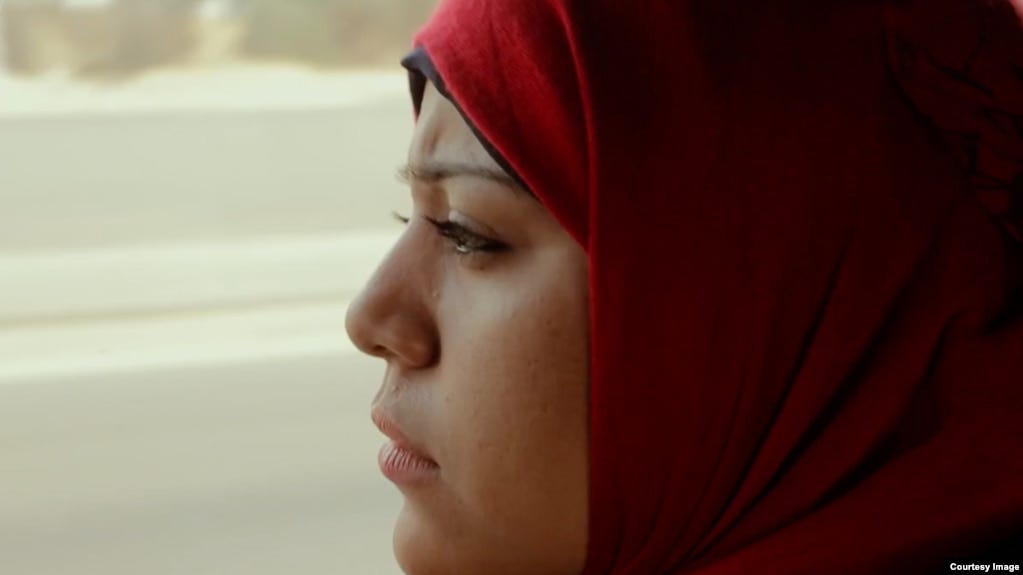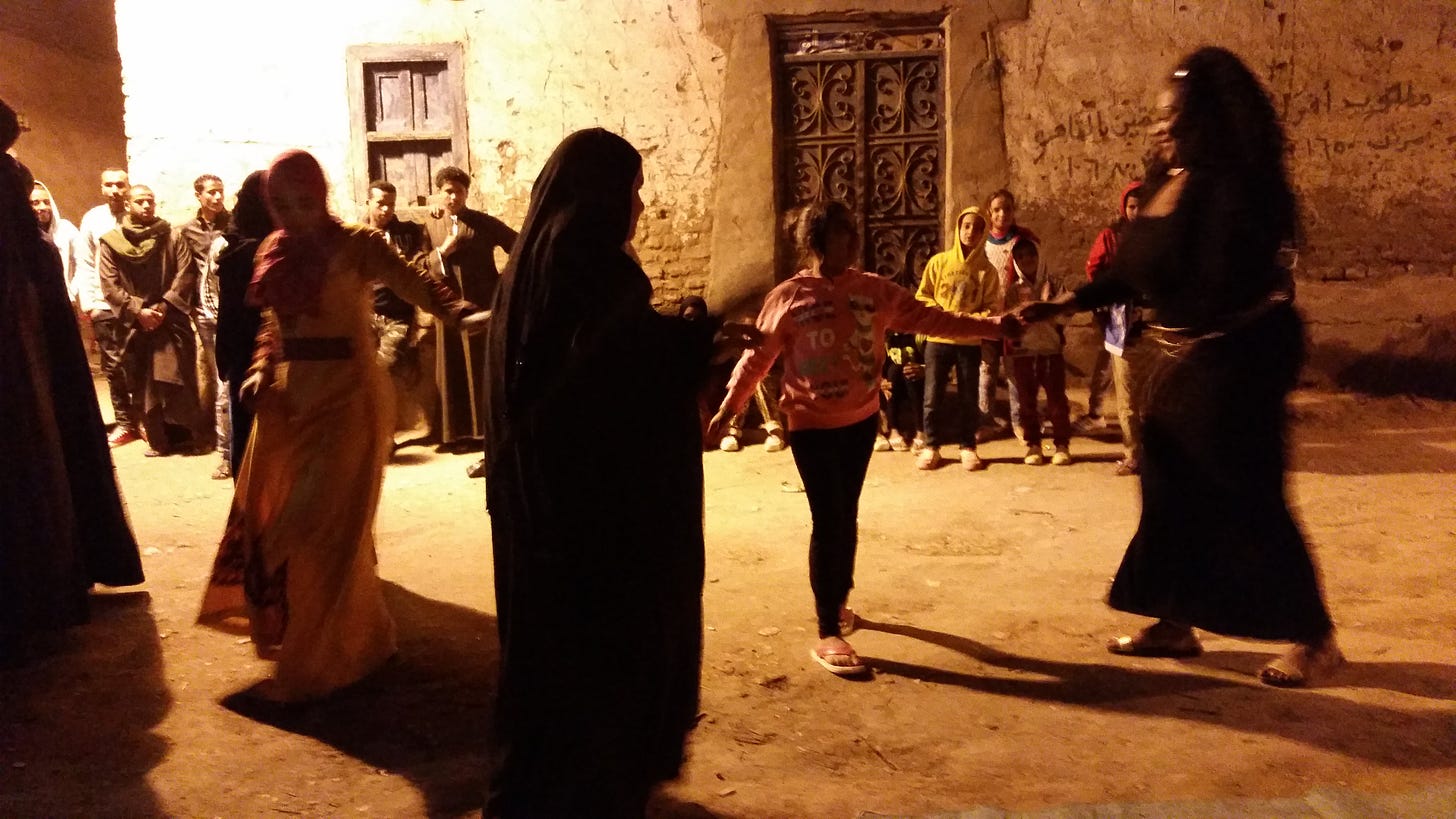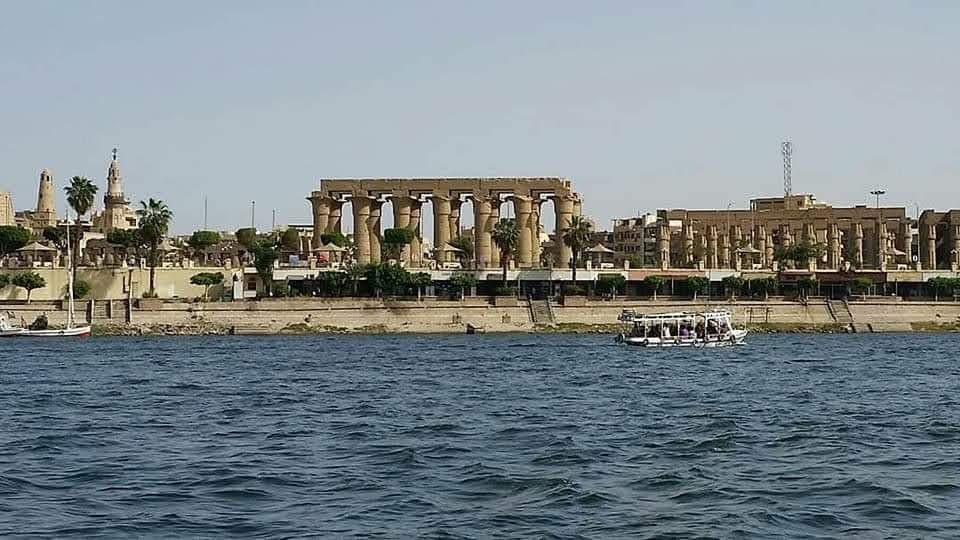So Many Thoughts as I Start this Saga
"My scars teach me that I am stronger than what caused them." ~ Manal al-Sharif, Daring to Drive
At last, I’m getting around to sharing my experiences of living in Luxor, Egypt from 2017 to 2020. I’m writing it as a series. I’ll try to publish one per week.
You can listen to me read the Introduction here:
One-time or recurring donations can be made at Ko-Fi.
INTRODUCTION
During my time in Luxor, I developed a love for the writing of Egyptian author Nawal El Saadawi. Saadawi was a fighter in the midst of so many enemies. She has been called the “Simone de Beauvoir of the Arab World” and “Egypt's most radical woman”. As a child, she was subjected to Female Genital Mutilation (FGM). As an adult, she was imprisoned and lost her job as Director of the Ministry of Health.
So much of her life resonates with me. It’s why I quote her at the top of my Break Free with Karen Hunt emails to subscribers:
They said, ‘You are a savage and dangerous woman.’ I am speaking the truth. And the truth is savage and dangerous.
It sounds romantic to be a “savage and dangerous woman”. It isn’t. When you become dangerous to those in power, they turn on you and your own life is put in danger. This happened to me several times in my life. It happened to me in Luxor.
In the movies, the ending is often an inspiring moment when the lone warrior is joined by others, and together they defeat the enemy. But that’s just in movies. I can’t tell you how many times over the years people have assured me “we’re right behind you”. But when I turned around, expecting their help at the crucial moment, they were strangely absent.
This is why nothing ever really changes. Most people prefer to “not get involved” and it’s understandable why.
In 1981, El Saadawi was imprisoned by Egyptian President Anwar Sadat. In an interview, El Saadawi stated, "I was arrested because I believed Sadat. He said there is democracy, and we have a multi-party system, and you can criticize. So, I started criticizing his policy and I landed in jail."
What she said can now be applied to the United States. We seem to think it’s okay for our government to imprison its political rivals because they believe differently than we do. We don’t understand the implications this has for us all. If we allow this to happen now, where will the witch hunts end?
The greatest crime in Egypt, or any Muslim country, is criticizing Islam. El Saadawi had the courage to question Islam and radical religion in general. In 2007, her book, God Resigns in the Summit Meeting, was removed from circulation and destroyed by her publisher Mahmoud Madbouli. The reason given was because it “offended readers’ religious sensitivities.” To this day, you cannot find this book.
As a westerner, unless you have lived under Sharia Law, it’s impossible to grasp how deeply engrained Islam is into every facet of life. Or how cruelly it rules. I’m not talking about an American businessman living in Dubai with all the perks, for example. I’m talking about a westerner living as the locals do, not as someone with powerful connections to the outside world.
Very few westerners have seen beneath the smiles for the tourists to the hatred for the “infidel” simmering beneath. They do not understand that despite what is said publicly in the West, Muslims believe that infidels must revert—not convert because everyone was originally Muslim, so we must revert—or be killed.
This is not some radical, fringe belief. It is deeply embedded into the religion. It is taught in the schools and in the homes. I know as I write this, some will shake their heads in disgust at my “Islamophobia”. They simply will not believe what I am saying.
It’s very hard for westerners to believe this because it goes against what we have been raised to believe. That there is separation of church and state. That all people have the right to worship as they wish and that religion becoming a part of government is a danger we should avoid at all costs. So many people came to America escaping persecution in order to worship freely. It’s almost as if it's in our blood.
When I went to Egypt in 2017, I didn’t believe in this “Islamophobic” idea of Islam either. You’d think I would have after my family’s experiences escaping Egypt right before the 6 Day War and barely making it out of Syria hours before the borders were closed.
One of my strongest memories of Egypt, which I wrote about in Into the World, is of my dad’s anger and frustration when dealing with Arabs. He would say things like, “All they do is lie,” “We’re just infidels to them”, “They think they have the right to cheat and steal from us,” and the overarching explanation for it all, “Islam is evil.”
I resisted this idea that Islam is evil. My father was a devout conservative Christian. Of course he would think that. But I didn’t want to be so closed minded.
Yes, I had felt the terror in Cairo of Nassar’s voice over the loudspeakers screaming “death to America and its stooge Israel". I’d seen the crowds of men surrounding our car, carrying guns and yelling the same. I’d heard the lies in the marketplace, in the hotels, whenever we had to buy anything. I had frightening memories of our escape out of Lebanon and over the mountains of Syria into Turkey.
But I also had wonderful memories of Luxor, a place far from the chaos of Cairo, where we saw nothing of the gathering storm clouds of war, or at least that I can remember. My experiences of the Nubian sailor telling stories as we sailed in his felucca on the Nile were too magical. My memories of lying on the balcony of the Winter Palace under a blanket of stars and staring across the Nile towards El Qurn Mountain, of walking through the tombs of the pharaohs in the Valleys of the Kings and Queens were too romantic. As I grew older, all of those wonderful adventures far outweighed the frightening experiences of my childhood.
Surely the simple, ordinary life in Luxor was what had outlasted the momentary flare ups of hatred and war. If I went back and sailed once again along the Nile, that was what I would find.
Sweeping statements that Islam was evil couldn’t be true. There were plenty of moderate Muslims. Surely, they far outnumbered the radicals. Terrorist organizations like ISIS, the Muslim Brotherhood, Hamas, were on the fringe. And anyway, the United States government had a lot to answer for when it came to the rise of terrorism. It was unfair to blame an entire religion for the actions of some extremist groups. Like Mohammad Omar, founder of the Taliban, who made it clear that “God says he will never be satisfied with the infidels.” Those were extremist views, not the views of ordinary Muslims.
I didn’t understand the words of Marco Polo:
“The militant Muslim is the person who beheads the infidel, while the moderate Muslim holds the feet of the victim.”
And most westerners don’t understand those words either.
I never encountered any terrorists or any type of extremism in Luxor. What I encountered was ordinary life. Life under Sharia Law.
Arriving in Luxor, I was under the impression that Egypt was one of the most progressive Middle Eastern countries. I had a great admiration for Anwar Sadat. The Arab Spring had been a wonderful awakening. I didn’t know that women like college student Hend Nafea were attacked by the military for participating in the protests.

“I was dragged, beaten and stripped, and there were around 15 soldiers beating me, sexually harassing me, touching private parts of my body. And they dragged me into the Shura Council building in Tahrir Square,” Nafea said.
Authorities arrested nine other women that day, Nafea told VOA, all of whom were held in a room for many hours, tortured with electric shocks and threatened with rape.
Nafea said the soldiers finally released her to a military hospital after she lost consciousness.
Although there was outrage after it was discovered what happened to women during the protests, nothing changed.
I didn’t know that most girls are still subjected to FGM. I didn’t know that Egypt was still considered one of the worst countries in the Arab world for violence toward women. I didn’t know that under the smiles for the tourists, hatred for infidels still smoldered. And I didn’t know that all of this was not “cultural” as Westerners like to say in defense of Islam, as if religion has nothing to do with it. No. All of it is justified precisely because of Islam.
It’s doubtful the story I am about to tell fits the sensibilities of liberals or conservatives. The choices I made while living in Luxor will shock some people on both sides of the aisle. But I have never much cared about that. The choices I make are often done because I want to understand something. And if that understanding is important enough to me, I will go to great lengths to achieve it. I went to Luxor badly wanting to understand Islam. In fact, I would say I was leaning more towards accepting it than rejecting it. Rather than proving my dad correct, I wanted to prove him wrong.
In The Lost Foreign Women of Luxor, I tell the story of what happened during Covid and how I helped Gitte escape. How I learned, as El Saadawi said,
“I now knew that all of us were prostitutes who sold themselves at varying prices, and that an expensive prostitute was better than a cheap one.”
This is the story of what happen before that, when I decided to open my heart to Luxor.






I'm looking forward to hearing more of this saga and your experiences in Egypt! I've been told by an Egyptian gentleman friend that the men in Egypt treat women like queens. Interesting to hear the other side of that story. I'm also curious to know if Egyptian women are also treated badly, in general, or if it's only foreign women.
can't wait for the next instalment. The 1st. one, like I said before really put the hook in me.